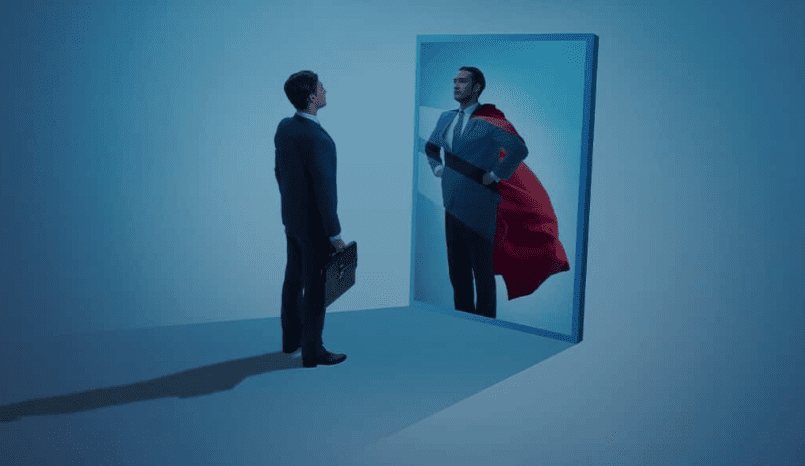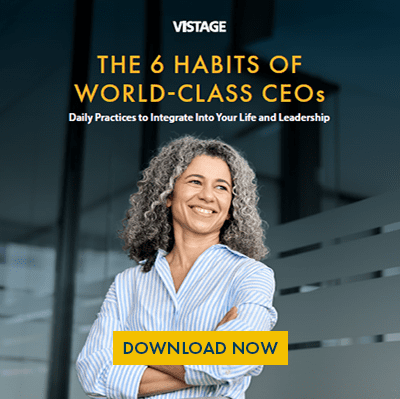You are here: Home / Leadership Insights / Business Operations / How confirmation bias can affect your business

How confirmation bias can affect your business

Past experiences, beliefs, and social trends shape how we think, helping us navigate our complex world quickly and safely. Known as confirmation bias, this very human tendency convinces us that we are making the right decision. However, in organisations, seeing only what we want to believe can lead to faulty decision-making and missed opportunities.
“It is human nature to make assumptions and take mental shortcuts to arrive at decisions,” says Susie Japs, managing director of talent strategy firm Wejungo in San Diego, California. “However, numerous social science studies show that snap judgments based on initial gut responses and what we feel to be true are often statistically inaccurate.”
A recent article published by Vistage Worldwide explores how confirmation bias can affect your organisation:
Confirmation bias makes us human
Confirmation bias describes a nature-and-nurture inclination to lean into information that reinforces already-held thoughts, values, and opinions. It is a way for the personal computer in our heads to come to conclusions faster but not necessarily better, says social scientist and researcher Lorne Epstein.
Founder of the Arlington, Virginia-based firm Electric Cow, Epstein points to our ever-evolving 300,000+-year-old brain as the origin story for confirmation bias. The extraordinarily dangerous physical world of early human existence left a lasting impression, says Epstein, a Vistage speaker. “We are on like the ‘Generation 8’ version of the human brain, and it still hasn’t fully adapted to modern times,” says Epstein. “While we may no longer be afraid of being eaten by free-roaming wild animals, psychological fears and the desire to be ‘right’ continue to influence our actions.”
Survival instincts aptly demonstrate confirmation bias in everyday decision-making. Epstein offers an example in a recent Electric Cow blog post. “You see a person walking down a street at 3 a.m. and, concerned, you decide to walk across the street,” he writes. “Your brain is using this mode to evaluate and has probably used a heuristic [mental shortcut] to assess the situation instead of a complete thought-out deliberation process.”
For the most part, confirmation bias occurs subconsciously and unintentionally. We usually have no idea our mind is essentially playing tricks on us, according to Vistage speaker Matt Brady. “We are just not wired to be contrarian to our own beliefs,” says Brady, founder of Volley Solutions in Golden, Colorado. “What we end up doing is favouring data that confirms our existing viewpoints and downplaying evidence that doesn’t.”
Confirmation bias impacts organisational decision-making
As long as human beings make business decisions, they will carry their confirmation and other cognitive biases into the workplace. These tendencies too often influence people to rely on intuition over information, Brady says.
Susie Japs adds that confirmation bias can influence and impact the critical areas of our businesses such as:
1. Hiring and Recruiting
Confirmation bias frequently rears its judgmental head in the area of talent acquisition. “From resumes to HR screening to AI tools, to hiring managers interviewing, people often make snap judgments and assumptions about candidates well before meeting them, and they don’t even realise they’re doing it,” according to Susie Japs.
She recalls one Wejungo client who had deemed a prospective hire as a “job hopper” and likely unreliable solely based on the woman’s resume. While the candidate had exceptional qualifications and expertise, she had two-year stints at her last three jobs. Susie Japs suggested that the client have a quick screening call first to further dig into the career transitions before rejecting the candidate based solely on her resume.
“It turned out that the woman had relocated every few years because her husband was in the military, but now they were permanently stationed in San Diego,” she says. “If our client hadn’t called, he would have made an unfair assumption resulting in never having interviewed her … essentially missing out on a great candidate.”
2. Performance evaluations and promotions
Measurables like key performance indicators should allow for fair and equitable employee performance reviews and career advancement. Yet subconscious favouritism stemming from confirmation bias can result in an uneven playing field, resulting in poor employee morale as well as attrition of top performers, according to Susie Japs.
If an untrained manager believes that “Mary” works harder than “Frank,” they may only notice evidence that supports this belief, due to confirmation bias. Relying on assumptions instead of facts can set “Frank” up for failure, as his manager may not acknowledge evidence that contradicts their initial belief.
“When we audit performance reviews for clients, it becomes clear to us in the manager-to-employee feedback who the team leader favours,” Susie Japs says. “While confirmation bias is unintentional, it is important to recognise that it happens and how it can negatively affect relationships in the workplace and — just as seriously — business results.”
3. Strategic planning and risk management
In his Decide Better® decision science workshops for leaders, Brady likes the well-worn slogan, “No one ever got fired for buying IBM,” to describe the insidious impact of confirmation bias on decision-making. In the early days of computing, IBM became a giant in the tech world with a stellar reputation for excellence. “Buying IBM” was generally thought of as a safe and risk-free decision, even though there have been plenty of instances of IBM hardware, software, and services having equivalent or superior market alternatives, according to Brady.
“One danger of confirmation bias is allowing a brand’s ‘halo effect’ to have an undue positive influence on the way companies make important business decisions, including hiring people, selecting vendors, and setting strategic priorities,” he cautions.
Recognising red flags of confirmation bias
Confirmation bias may seem like it is speeding up decision-making as we avoid contradictory evidence that might involve more time and effort to interpret and analyse. Yet the perceived time-savings could be a sign that confirmation bias has taken root in a company.
“Leaders need to ask themselves if making decisions has become too easy,” says Epstein. “If they are not struggling, they are probably not actively questioning and challenging currently held assumptions.”
Pre-existing beliefs and biases can also influence team decisions and result in “groupthink.” This term describes a psychological phenomenon of human behaviour that prompts people in groups to make poor choices. Striving to be “good team players,” normally strong critical thinkers may reframe their viewpoints to harmonise with sometimes less-than-ideal group consensus opinions.
Originally identified by Yale social psychologist Irving Janis in the early 70s, the theory of groupthink has been blamed for major high-profile catastrophes like the Bay of Pigs Invasion and the Space Shuttle Challenger disaster. While the stakes may not be so high for faulty business decision-making, confirmation bias can whittle away at long-term business sustainability and missed opportunities for innovation and growth.
“Confirmation bias becomes more dangerous in collective environments, where teams can become overconfident in their ideas and fail to recognise superior alternatives,” says Brady.
The HIPPO effect, an acronym that describes when the “highest paid person’s opinion” is unequivocally embraced without sufficient rigour, can contribute to uninformed decision-making. In the absence of a corporate culture that encourages employees (especially those closest to the success or failure of a project) to express their opinions freely, groupthink can lead to less-than-optimal choices that may go unchallenged, says Brady.
Adds Epstein, “It’s truly important not to follow the herd in decision-making.”
Putting matter over mind
Tackling confirmation bias works best from the top down. Here are several strategies leaders can use to counter its negative effects:
1. Acknowledge biases exist
Confirmation bias is the most common cognitive bias for a reason. Confirming our beliefs and acting on assumptions happens all the time because we are simply human, Susie Japs says. Managing this inclination takes diligent self-awareness.
Susie Japs advises being conscious about recognising when it comes into play and intentional about preventing its influence on important organisational decisions. “Ask yourself: ‘What do I feel right now? Why? And is my gut feeling being led by bias with no substance to back it up?’” she says. If so, more fact-finding and validation efforts are in order.
2. Encourage multiple perspectives
Building teams with naturally diverse points of view better informs and enriches the decision-making process. People with varied backgrounds, skill sets, and experiences provide organisations with a better chance of getting a 360-degree view of the direction they should choose, according to Epstein.
“Diverse teams allow you to see problems and solutions in many different ways that can lead you to make more informed decisions,” he says.
Brady adds you should integrate a variety of insights from both inside and outside your organisation by:
- Creating a council of trusted advisors without a direct stake in the alternatives and finalists being considered.
- Factoring in outside expertise to augment your leadership team’s expertise.
- Polling and surveying your teams (including anonymously) to validate or challenge assumptions.
3. Take advantage of data
With the growth of artificial intelligence systems, tools to evaluate almost every business operation, from vendor selection to performance reviews, are within reach of companies of all sizes. Today, AI can quickly generate insightful and timely data to support decision-makers. Using solid evidence and empirical data offers a more disciplined approach so you can arrive at the right decision for your business needs.
“When a snap decision works out well, we feel like geniuses … but why skip the discipline part?” says Brady, who also serves as an adjunct faculty member at the University of Colorado’s Leeds School of Business, where he teaches a human-centred technology course he developed. “We are entering a new frontier. If you can access quantitative and qualitative datasets, leverage them for strategic advantage. If you don’t, set the vision and invest in gaining them. You will make better decisions faster and with a more aligned organisation.”
While confirmation bias rules our subconscious, our conscious selves have a choice to keep it from adversely controlling decision-making.
Challenging existing beliefs with objectivity rather than subjectivity, data-driven methods, and diverse viewpoints work to promote critical thinking and open-mindedness in the business setting, according to Epstein.
“If you ignore confirmation bias, it will eventually blow up,” he says. “But if organisations are mindful of it and tend to it, they can better ensure that their decisions are fair, informed, and effective.”
Originally published on Vistage Worldwide.
If you’re looking for daily practices to integrate into your life and leadership, download our latest guide ‘The 6 Habits of World-Class CEOs’. It offers practical insights and strategies to cultivate the daily practices that will empower you to thrive in your leadership role.




